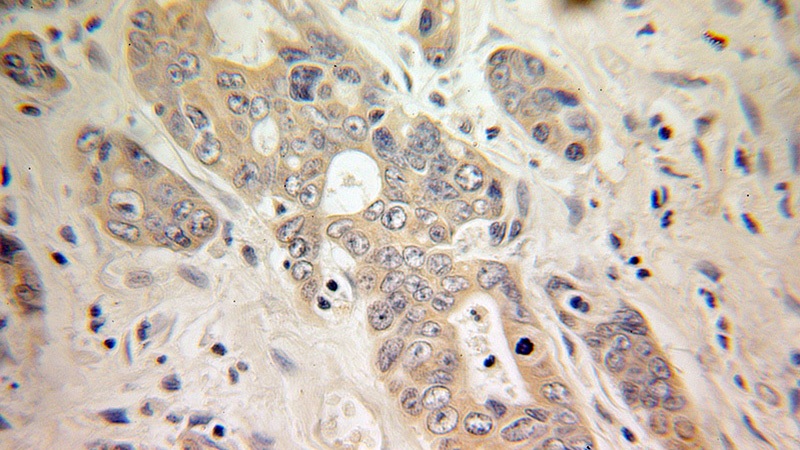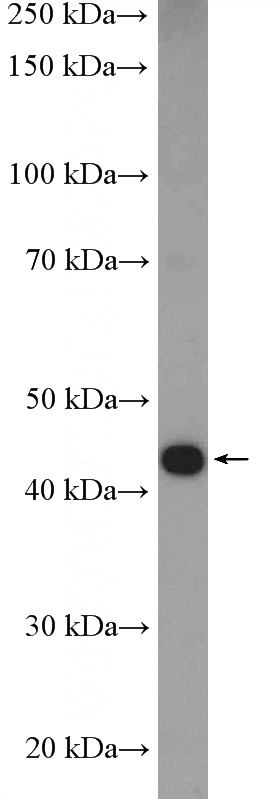-
Product Name
Torsin A antibody
- Documents
-
Description
Torsin A Rabbit Polyclonal antibody. Positive IHC detected in human colon cancer tissue. Positive WB detected in mouse brain tissue, HEK-293 cells, mouse kidney tissue, mouse liver tissue, rat brain tissue. Observed molecular weight by Western-blot: 42-50 kDa
-
Tested applications
ELISA, IHC, WB
-
Species reactivity
Human, Mouse, Rat; other species not tested.
-
Alternative names
DQ2 antibody; Dystonia 1 protein antibody; DYT1 antibody; TOR1A antibody; Torsin 1A antibody; Torsin A antibody; Torsin family 1 member A antibody; TorsinA antibody
-
Isotype
Rabbit IgG
-
Preparation
This antibody was obtained by immunization of Torsin A recombinant protein (Accession Number: NM_000113). Purification method: Antigen affinity purified.
-
Clonality
Polyclonal
-
Formulation
PBS with 0.1% sodium azide and 50% glycerol pH 7.3.
-
Storage instructions
Store at -20℃. DO NOT ALIQUOT
-
Applications
Recommended Dilution:
WB: 1:500-1:5000
IHC: 1:20-1:200
-
Validations

Immunohistochemical of paraffin-embedded human colon cancer using Catalog No:116256(TOR1A antibody) at dilution of 1:100 (under 25x lens)

mouse brain tissue were subjected to SDS PAGE followed by western blot with Catalog No:116256(TOR1A Antibody) at dilution of 1:1000
-
Background
TOR1A (torsin A), also known as DYT1, is a member of AAA+ family of ATPases that mediate chaperone and other functions involved in conformational modeling of proteins, protection from stress, and targeting of proteins to cellular organelles. TOR1A is a 37 kDa ATP binding protein highly expressed in hippocampus, spinal cord, kidney and liver. TOR1A primarily localizes to the ER while exposure to oxidative stress causes the redistribution to cell surface protrusions. Mutations in gene encoding TOR1A cause the most severe form of hereditary dystonia, termed early onset, generalized dystonia. Interestingly, Lewy bodies of PD patients were intensely immunoreactive for torsinA.
Related Products / Services
Please note: All products are "FOR RESEARCH USE ONLY AND ARE NOT INTENDED FOR DIAGNOSTIC OR THERAPEUTIC USE"
